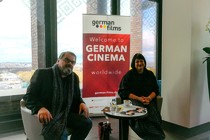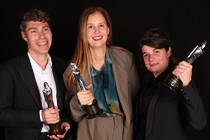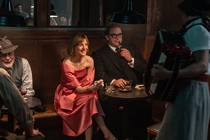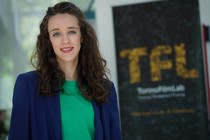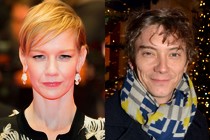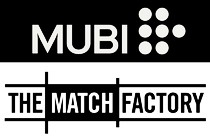Toni Erdmann: Like a bull in a china shop
- CANNES 2016: For her first time on the Croisette, Maren Ade comes bearing an audacious film in which the comical aspect circumvents the profound realism of a father-daughter relationship
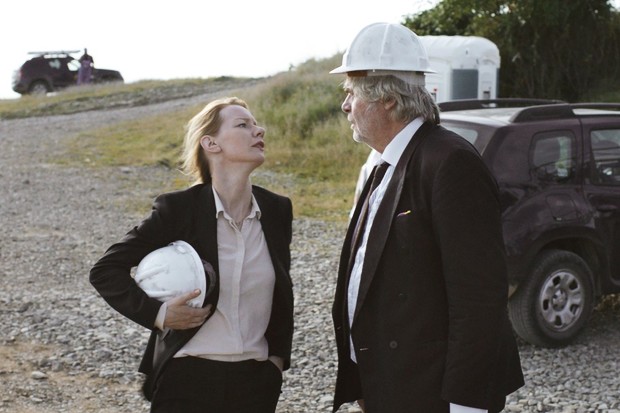
For her first appearance in competition at the Cannes Film Festival, German director Maren Ade, who made quite the splash with her previous opus, Everyone Else [+see also:
film review
trailer
interview: Maren Ade
film profile], has audaciously confirmed her status as a rising star, thanks to her third feature, Toni Erdmann [+see also:
trailer
Q&A: Maren Ade
film profile]. Patiently weaving its web around the traditional subject matter of a father desperately hoping to become closer to his daughter at any cost, while the latter is living in a different country, working in the cutthroat world of international consulting, the movie constantly circumvents its carefully constructed hyperrealism through disruptive comic impulses, intrinsically linked to the personality traits of one of the two main characters – a father who will even stretch to pretending to become someone else in order to successfully break through his daughter's armour. This one enormous joke, sometimes bordering on the grotesque, transforms into a sort of power struggle in which humour and love attempt to thaw an icy coldness and overcome distance. It is a feature walking a fine line – occasionally verging on losing its balance – which owes a great deal to the huge talent of its two lead performers: fascinating German actress Sandra Hüller and Austria's Peter Simonischek.
"I've hired a substitute daughter to replace mine. She's a better cook and she cuts my nails." This is the kind of joke that Winfried loves to crack out of the blue in the presence of Ines, the key character in the story – and in the most inappropriate circumstances, to boot (for instance, in the middle of the business dealings being undertaken by his daughter, who is an expat living in Bucharest, where she is a consultant at a big international firm). And the sixty-something has plenty of other banter-filled tricks up his sleeve, all of which is enough to make Ines particularly uneasy when her dad, who is divorced from her mother, and whom she sees very rarely or only via Skype, turns up without warning to pay her a visit in the Romanian capital. Because this young woman has other fish to fry at work (where she is busy preparing a restructuring scenario for a large company) and also wants to focus on her career, where her ambition reigns supreme. However, a few blunders later, Winfried really hits a nerve when he asks Ines whether she is happy or not, which she responds to curtly by sending him packing, off to the airport. But much to her surprise, she sees him reappear some time later, completely out of the blue, in disguise, introducing himself (to anyone who cares to listen) as Toni Erdmann and behaving in just as zany a way as his previous incarnation, Winfried. Interfering with the professional and private life of his exasperated daughter ("You're completely insane!”), Toni/Winfried will nevertheless manage to succeed in his assault, to the point where Ines takes up the gauntlet and decides to join in with her father's game. This role-play gets totally out of control, turning into a match between their different takes on life, where each action stirs highly personal emotions that are buried deep down.
Unfolding on a knife-edge, and focusing on a subject that can easily, by its very nature, lend itself to a lot of slip-ups, Maren Aden nonetheless stays the course very effectively, indulging in a thrilling finale that rewards the audience's patience. Its mise-en-scène really takes the time to infuse the silences with meaning in order to render the internal solitude of the two main characters more clearly. Intertwining "larger than life" mockery, a humanistic tenderness and a portrait of the tyranny of high-performing, modern-day big business, Toni Erdmann (sold by The Match Factory) proves to be a cinematic prototype that is genuinely special, a daring oddity that stands as a testament to the ingeniously original hallmark of this director, who is not one to back down from a challenge.
(Translated from French)
Did you enjoy reading this article? Please subscribe to our newsletter to receive more stories like this directly in your inbox.














